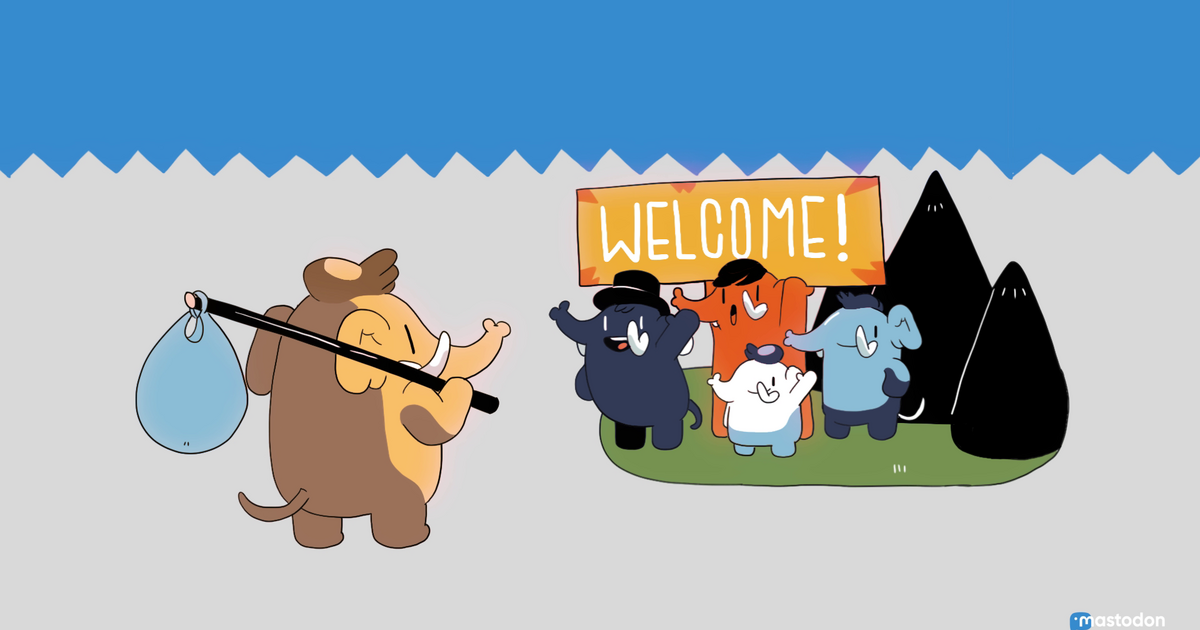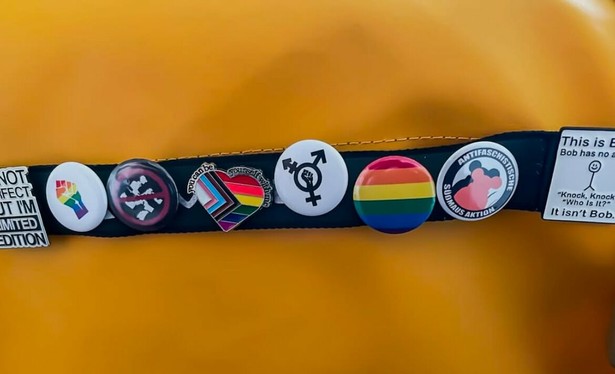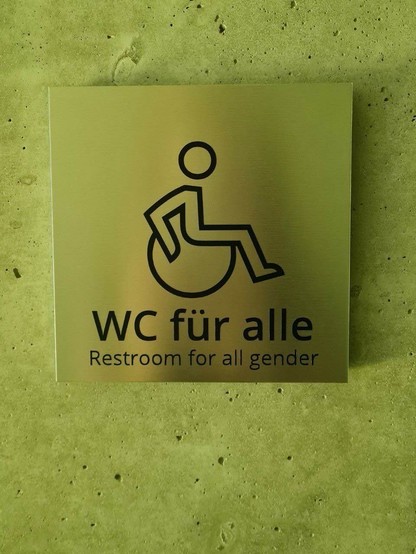Recent searches
Search options
#DisabilityPrideMonth
You don’t build a culture of inclusion by offering token gestures, organizing one-off PR events, workshops, or 101 sessions.
You build a culture of inclusion by engaging with people, and understanding their unique needs and perspectives.
I’m proud to say I just published the fifth and final piece in my series about the experience of accessing healthcare as a disabled person.
This series was difficult to write - because it opened up old wounds. It reminded me of how much gaslighting and abuse I’ve endured at the hands of healthcare workers. It showed me how far I’ve come in becoming a strong and confident advocate.
I thought it might be helpful to list all the articles in one toot - so people can see any they may have missed.
I would encourage everyone to consider sharing with healthcare workers in your life - because my sincere hope is that if they read a first hand account of how these experiences impact a patient - they may approach others differently next time.
I want to thank all the wonderful healthcare workers who’ve cared for me over the years. Who’ve let me be a partner in my care and respected the fact that I know my body best. People like you are the reason I’m still alive - and your kindness and compassion gives me the courage to keep advocating.
To all the patients who’ve had similar experiences, who are scared to go to the hospital or who might be in the hospital now and in need of help…. I hope my series gives you some comfort. I hope it makes you feel less alone and helps provide tips for how to make the experience of going to the hospital a bit safer and easier.
I know how lonely it is to be chronically ill. I know how terrifying it is to give up agency and control to HCWs who may not understand the severity of your disabilities. I see and care about you and I will keep fighting to make our healthcare systems safer for everyone.
Part 1: “Won’t Go to the ER Unless I’m Literally Dying”. https://www.disabledginger.com/p/i-wont-go-to-the-er-unless-im-literally
Part 2: “Tips for Surviving a Hospital Trip when Chronically Ill” https://www.disabledginger.com/p/tips-for-surviving-a-hospital-trip
Part 3: “How to Stay Covid Safe When in Hospital” https://www.disabledginger.com/p/how-to-stay-covid-safe-when-in-hospital
Part 4: “How to be an Effective Advocate for a Disabled Patient.” https://www.disabledginger.com/p/how-to-be-an-effective-advocate-for
Part 5 “My Most Dangerous Hospital Experience and How my Advocate Saved my Life” https://www.disabledginger.com/p/my-most-dangerous-er-experience-and
Juli ist vorbei, aber es bleibt dennoch wichtig: #DisabilityPrideMonth. Wir haben dazu zwei Videos auf @gebaerdenverse online.
Was ist der Disability Pride Month?
Was ist die Disability Pride Flagge & ihre Farb-bedeutungen? (+ Bonus: Neue Flaggenidee aus der Community, wo Neurodivergenz und Chronisch Krankheiten inkludiert sind!)
Die Videos sind in #ÖGS mit Transcript auf Deutsch.
I think in order to feel #DisabilityPride, a person needs to have a workable answer to this question: What does it mean to believe in oneself _and_ accept one's own limitations?
How do YOU relate to the things you're bad at but have to do anyway? Or the things you feel judged for not being able to do at all?
See the (free!) #Patreon post for this:
https://www.patreon.com/posts/self-worth-vs-109141578
My wife encouraged me to write this for #DisabilityPrideMonth which ends today. It definitely feels odd to write this, but here it is.
"If you see someone use the disabled toilet (or any toilet) just... mind your own business. You don't need to try and measure their disability, or guess their gender."
https://blog.brettsheffield.com/not-all-disability-is-visible
Passend, dass ich das noch am letzten Tag des #DisabilityPrideMonth gesehen hab.
today is the last day of #DisabilityPrideMonth .
I have multiple chronic diseases, some of there since i born, I struggle with chronic pain, chronic fatigue, mental health. I am proud: not proud to be disable, but proud to be alive against my whole body try to put me down, proud to my force, I had think to kill myself a lot of times, once I also try to... but I am still here. I love all you disable guys!
Der #DisabilityPrideMonth geht zu Ende, aber der Aktivismus geht weiter. Und auch wenn es manchmal nur kleine Tropfen sind: jeder Beitrag hilft, um mehr Akzeptanz, Inklusion und Aufklärung in der Gesellschaft zu erreichen.
I'm very pleased that the Royal Society's diversity team was keen to do this article. I want to maximize the impact of my privilege by acting visibly as a disabled scientist.
#DisabilityPrideMonth #DisabledPride #DisabledInSTEM
Zum Abschluss des #DisabilityPrideMonth habe ich noch eine kleine Posse für euch.
Vor nunmehr 3 Jahren kam in meiner Studierendenvertretung beim @iFSR die Idee auf, ein geschlechtsneutrales WC im Fakultätsgebäude einzurichten. Seit "heute" hängt nun ein Schild, das dieses Klo anzeigt. An einem Raum, der von den Studierenden (mir damals eingeschlossen) aus verschiedenen Gründen abgelehnt wurde.
Aber die Uni macht eh, was sie will. Die Situation, wie sie jetzt ist, ist absoluter Mist.
#Diversity #Ableismus #Inklusion
Wider Erwartung hat niemand geheult, wann der Nichtbehinderten-Pride Month stattfindet.
Nächstes Jahr im Juli findet wieder der Disabelity Pride Month statt!
Diese Serie „Im #DisabilityPrideMonth dran erinnern, daß …“ mit einem Post an jedem Tag im Juli hatte ich vor zwei Jahren schon einmal auf Twitter gesendet. Ein paar einzelne Statements habe ich etwas angepaßt, aber das Traurige ist: In den zwei Jahren hat sich praktisch nichts davon verändert.
Im #DisabilityPrideMonth dran erinnern, daß …
31 … nichts über uns ohne uns laufen sollte. Redet mit behinderten Menschen, wenn es um behinderte Menschen geht, nicht nur über sie!
More on #DisabilityPrideMonth - I embrace the idea of disability pride, because I want to shout from the rooftops that there is nothing "wrong" with me - I am how I am, no worse than anyone else, just part of the wild tapestry of diverse bodies and brains. My disabilities absolutely slow me down and throw obstacles in my path, and that sucks. Some of that is inherent to the disabilities - but some of that isn't so much the disabilities themselves so much as the fact that I live in a world that's build to accommodate a very narrow view of what it is to be a human - and often I don't fit that view.
It's complicated though. I feel a lot of yes/and with all of this.
Take my C-PTSD, for example. I have C-PTSD because of years and years of childhood abuse. So in a very real sense, PTSD = damage. And it's easy to feel like it makes me broken. But actually, it's not me that's broken - it's the culture we live in that normalizes violence, abuse, rape culture, gendered violence, etc. My body and brain are just reacting to those things in a very normal and predictable way. I am not the problem here - and that's really important.
Disabled people are not the problem. A world that doesn't accommodate all the different varieties of ability is the problem. A world that *causes* disability is the problem.
When he assumed his seat in the Maryland General Assembly in 2023, politician and disability rights advocate Aaron Kaufman became the first person with a physical disability to serve as a member of that legislative body. #DisabilityPrideMonth https://en.wikipedia.org/wiki/Aaron_Kaufman_(politician)
Being #disabled does NOT make a person pathetic! Aw HELL no. But the cultural messages say otherwise & I'm really struggling with *feeling* pathetic, worthless, etc. I don't think we can talk about #DisabilityPride without also talking about #DisabilityShame.
Read more about this (free!) on #Patreon, with links to other free posts & comics about being disabled:




